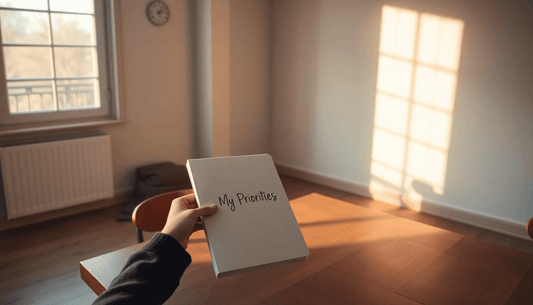
The Power of Saying No: How Boundaries Boost Your Growth
Saying "yes" to everything is draining—growth starts with learning when to say "no." Setting healthy boundaries is a superpower that fuels self-empowerment and helps you focus on what truly matters.
Too often, we get caught up in the pressure to please others, be reliable, and avoid disappointing anyone. We end up overcommitting, burning out, and resenting the very people we're trying to impress. But the truth is, boundaries aren't selfish—they're essential for our mental health, productivity, and personal growth.
In this blog post, we'll explore why it's so hard to say no, healthy boundaries, and how setting limits can propel you forward in life.
Why We Struggle to Say No
At the root of our difficulty setting boundaries is a mix of fear and social conditioning. We're afraid of being seen as unreliable, selfish, or "difficult." There's a pervasive myth that saying no means missing out on opportunities or disappointing others.
Additionally, many of us have been socialized to be people pleasers from a young age. We learn to prioritize the needs of those around us over our own, often at the expense of our mental health and personal goals.
This pressure to say yes can stem from various sources:
- Fear of Disappointing Others: We don't want to disappoint people or be seen as unreliable.
- Desire to Be Liked: There's a deep-seated need to be accepted and approved of by our peers.
- Pressure to Overcommit: We feel obligated to take on more tasks and responsibilities than we can realistically handle.
Overcoming these ingrained habits and beliefs is challenging but essential for our growth and well-being.
What Are Healthy Boundaries?
Boundaries are the limits we set to protect our physical, emotional, and mental well-being. They define what we're willing to accept and what we won't tolerate from others.
Healthy boundaries come in many forms:
- Emotional Boundaries: Protecting your feelings and emotional space from the influence of others.
- Physical Boundaries: Establishing personal space and comfort levels with physical touch.
- Mental Boundaries: Guarding your thought processes and energy from draining or negative influences.
- Time Boundaries: Prioritizing your schedule and saying no to commitments that don't align with your priorities.
Boundaries aren't to push people away or be selfish—it's to create a safe, nurturing environment for yourself. When you honor your limits, you're able to show up as your best self and build more meaningful, authentic connections.
How Saying No Fuels Personal Growth
Contrary to popular belief, setting boundaries isn't a sign of weakness—it's an act of self-respect and empowerment. Learning to say no frees up time and energy to focus on what truly matters to you.
Here are some of the powerful ways that boundaries boost your growth:
- More Time and Energy for Your Priorities: When you stop overcommitting, you can channel your resources into the people, projects, and activities that align with your values and goals.
- Increased Self-Confidence and Self-Worth: Honoring your limits demonstrates that you respect and believe in yourself. This self-assurance radiates outward, making you more resilient and able to advocate for your needs.
- Reduced Stress, Burnout, and Resentment: Saying no to draining obligations prevents you from becoming overwhelmed and resentful. You'll experience less anxiety and more joy in your daily life.
- Healthier Relationships: Boundaries create a foundation of mutual respect in your personal and professional connections. When you're clear about your limits, people are more likely to value and appreciate you.
Ultimately, the power of saying no lies in its ability to help you become the best version of yourself. It's a skill that unlocks your potential for growth, fulfillment, and authentic living.
Practical Tips to Start Saying No
If the idea of setting boundaries makes you uncomfortable, start small and build up your confidence. Here are some tips to help you get started:
- Use Polite but Firm Language: When declining a request, say something like, "I can't commit to that right now, but I appreciate you thinking of me." Avoid apologizing or making excuses.
- Start in Safe Environments: Practice saying no to low-stakes requests from people you trust. This will help you get comfortable with the process before tackling bigger boundaries.
- Remind Yourself of Your Priorities: Keep your values and goals in mind. Saying no becomes easier when you know it's in service of what truly matters to you.
- Build Up Gradually: Don't try to overhaul everything at once. Take small steps, and celebrate your progress along the way. The more you practice, the more natural it will become.

Ultimately, the power of saying no lies in its ability to help you become the best version of yourself. It's a skill that unlocks your potential for growth, fulfillment, and authentic living. So don't be afraid to set boundaries—your future self will thank you.



